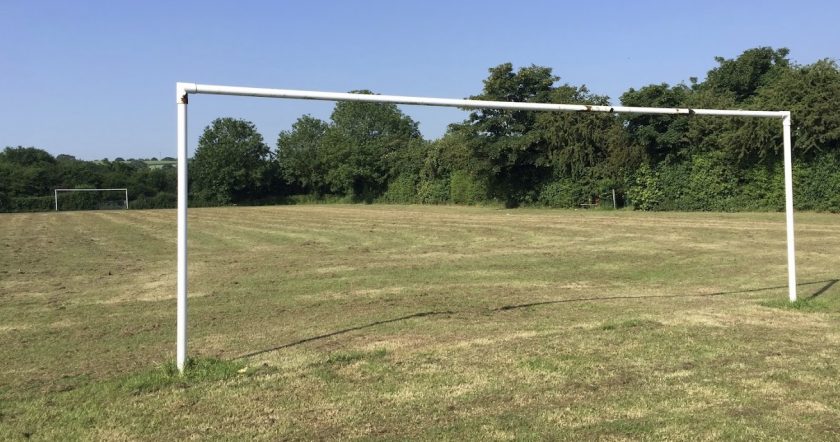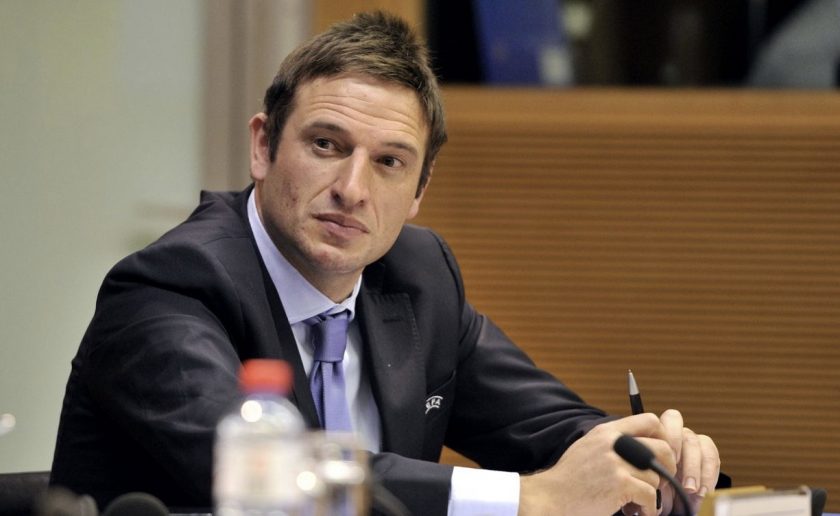Calls for grassroots football investment as new study shows it’s worth £550m a year to the Welsh economy

The Football Association of Wales has called for more investment in grassroots football after a new report showed it is worth hundreds of millions of pounds to the Welsh economy.
The Value of Welsh Football Study by UEFA backed by the World Health Organization and UN found that clubs and players contribute over £550 million pounds to the Welsh economy.
£263 million is a direct contribution to the Welsh economy, more than £206 million healthcare savings and an almost £84 million economic impact of social benefits.
Noel Mooney, chief executive of the Football Association on Wales (FAW) is calling for money to be invested into grassroots facilities across Wales and said the current level of funding is “not acceptable.”
The FAW is currently doing gap analysis of what there is currently and what is needed to “move us into the first into the 21st century, in terms of fit for purpose facilities. ” Mooney told BBC Radio Wales.

Noel Mooney, chief executive of the Football Association on Wales
“We are looking at every village and every town across Wales engaging with local authorities, the Welsh Government and Sport Wales.”
“We will produce the report on where we need to build football pitches and where we need to repair pitches.”
Work to bring facilities up to standard would cost around £100m over the next 10 years “and that would be just to get us where we need to be, there is a long way to go.” He said.
While 100s of thousands of adults and children take part in football across Wales, the detailed research is only based on the 90,000 players and 18,000 volunteers registered with the FAW.
Demand to play the game has grown as Wales moves out of COVID-19 lockdowns, there are many more players on club waiting lists across Wales.
Mooney said the FAW needs to get funding in place to invest in grassroots facilities “we’re calling on the Welsh Government to support us.”
“We have very little funding at the moment for sports capital infrastructure, it’s not acceptable.” He said.
“I’ve lived in Switzerland for the last 10 years with UEFA, I’m from Ireland, and the funding across Europe is far in excess of what we’re getting here in Wales and I don’t really see much coming into grassroots facilities.” He said.
By 2026, projections show that grassroots football will contribute nearly £700m a year to the Welsh economy if the targets of ‘Our Wales’, a new vision and strategic plan for Welsh football, are met.
The ‘Our Wales’ plan for 2021-2026 aims to ensure that football continues to grow rapidly, regarding inclusivity, accessibility and success on and off the field.
The FAW has a target of reaching 120,000 registered footballers, doubling the size of the women and girl’s game and ensuring that grassroots facilities are developed in line with these targets.
Mooney said: “The FAW has been around since 1876 but this is the first time we’ve been able to put a figure on the true economic and social value of participation in football.”
“If you’re one of the thousands of us across Wales who’s played the game, you’ve long known that football’s much more than a game, much more than kicking a ball around.”
“The impact on your head, on your heart and in bringing communities together is something that lasts long after the whistle’s blown.”
“The UEFA Grow SROI findings have been key to us determining the real value of football to Wales, both in monetary and social terms.”
“The insight from this evaluation reaffirms football’s contribution to Welsh society and it comes at a crucial time for the Association as we look to grow the game through the delivery of our new strategy.”
“We’re ambitious and want to work in partnership to deliver an inclusive and accessible game.”
“At the heart of everything is the availability of quality facilities for the grassroots game and we’re already working with local authorities and other partners who understand how investment can benefit the whole of Welsh society.”
Welsh Conservative Shadow Minister for Sport, Tom Giffard MS, said: “Sport has a major impact on all aspects of our society, whether it be creating thousands of jobs or improving people’s mental and physical health, which in turn helps our NHS.
“With grassroots football boosting our economy by a huge £550m in Wales, it is only right some of that money goes back to clubs and facilities in Wales in a bid to build on that success.
“We have a major opportunity to boost the value of the grassroots game to nearly £700m, which will go a long way in helping the country bounce back from the pandemic, so it is vital Labour ministers engage with the FAW to make that a reality.”
Spotted something? Got a story? Email: [email protected]
Latest News
